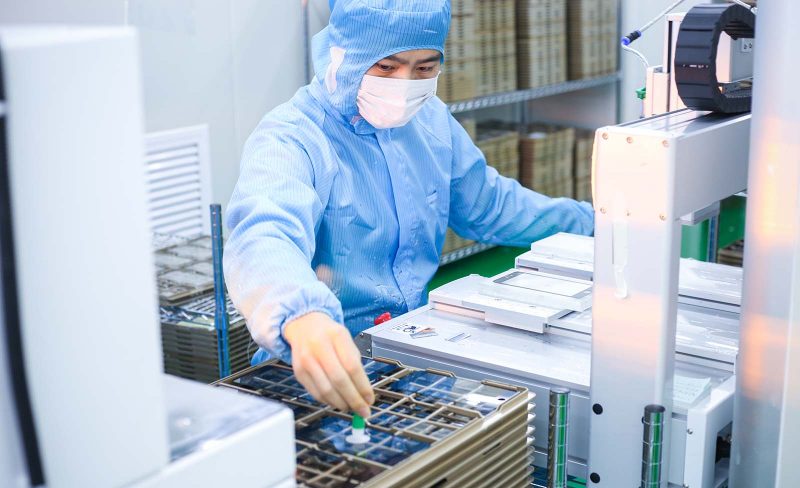China will set up new central government-owned conglomerates focusing on strategic emerging industries at an appropriate time, the State Assets Supervision and Administration Commission (SASAC) said on Thursday.
State-owned giants in the world’s second-biggest economy should step up innovation and strengthen tech research for industrial machines, high-end computer chips, new materials and new energy vehicles, the SASAC said in a statement posted on its website.
Net profit at China’s central government-owned firms more than doubled in the first seven months of the year compared with the same period a year ago to 1.2 trillion yuan ($185 billion), the SASAC said.
Rising raw materials prices have mainly benefited China’s state giants, which dominate upstream industries, while small firms have been struggling to pass on higher costs to consumers.
Computer chips, ‘green hydrogen’
The semiconductor industry became a focus of attention after trade rivalry intensified during the Trump Administration’s time in office, when it imposed sanctions on Huawei allegedly because of national security concerns.
China’s Global Times said recently that “many local governments, investors and internet firms have thronged to the sector”, and there is likely to be “a fierce contest for chip-making talent” as the country wants to exert greater control over chip manufacturing.
Big internet firms such as Alibaba, Baidu, Tencent and ByteDance had all made forays into the sector, it said, noting that Tencent placed advertisements last month seeking chip design engineers and chip verification engineers.
Meanwhile, there were reports this week that a huge renewable energy project has been approved in Inner Mongolia, involving the use of solar and wind power to produce ‘green hydrogen’.
Similar projects have also been proposed recently in Western Australia.
• Reuters and Jim Pollard
























